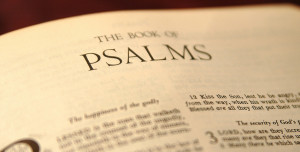We are studying together the worship book of the nation of Israel and we have seen that worship is not pious platitudes or covering up our doubts and fears but worship is bringing those doubts and fears out into the open; into the presence of a God who cares about what we are going through.
The Psalm we are going to study this Sunday is the opening song of book three of the Psalter and it is a song of Asaph. Asaph openly expressed his doubts as he writes, “As for me, my feet had almost slipped; I had nearly lost my foothold.†(73.2)
Do you ever feel like that about faith? I almost slipped, I almost stopped believing? What Asaph saw in his world seemed to contradict what he believed about God. Asaph envied the prosperity of the wicked who seemed to have an easier life than he. What can we learn from Asaph’s song?
Nous étudions ensemble le livre des louange de la nation d’Israël et nous avons constaté que ces louanges n’étaient pas de pieuses banalités ou un moyen de cacher nos doutes et nos peurs mais un moyen de présenter ces doutes et ces peurs dans la présence d’un Dieu qui se soucie de ce que nous traversons.
Le Psaume que nous étudierons ce Dimanche est le chant d’ouverture du troisième livre du psalmiste et il s’agit d’un chant d’Asaph. Asaph a exprimé ouvertement ses doutes lorsqu’il a écrit: “Quand à moi, pour un peu mes pieds allaient s’écarter du chemin; il s’en ai fallu d’un rien que mes pas ne glissent.†(73.2)
Vous arrive t-il de ressentir cela à propos de la foi ? J’ai failli glisser, j’ai presque arrêté de croire ? Ce qu’Asaph a vu dans son monde semble contredire ce qu’il croyait à propos de Dieu. Asaph a envié la prospérité du méchant qui semblait avoir une vie plus douce que la sienne. Que pouvons-nous apprendre du chant d’Asaph ?
